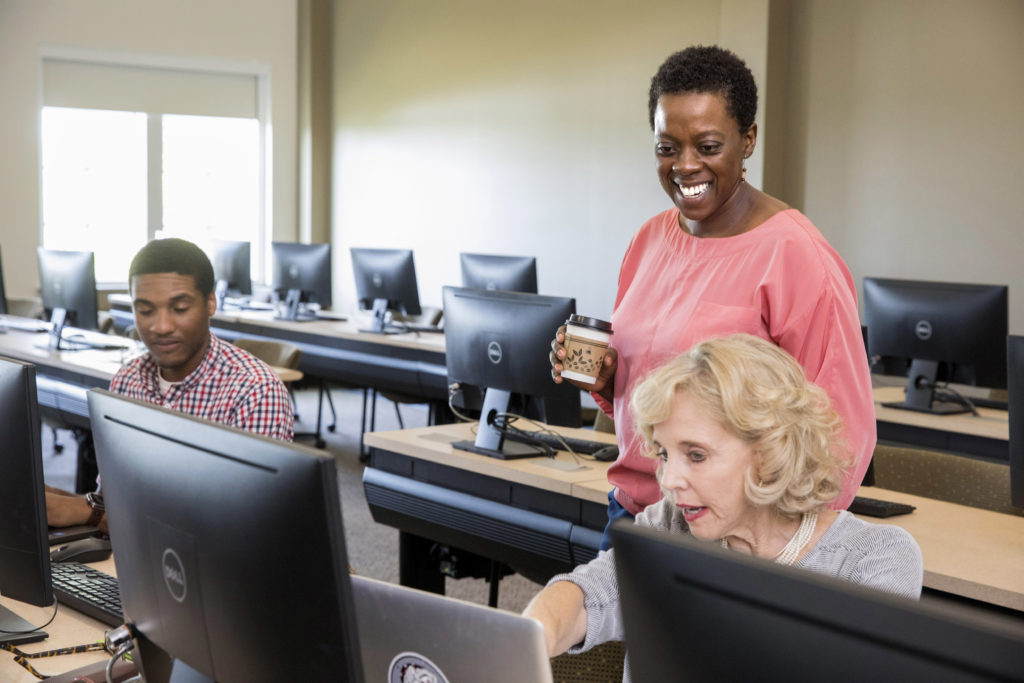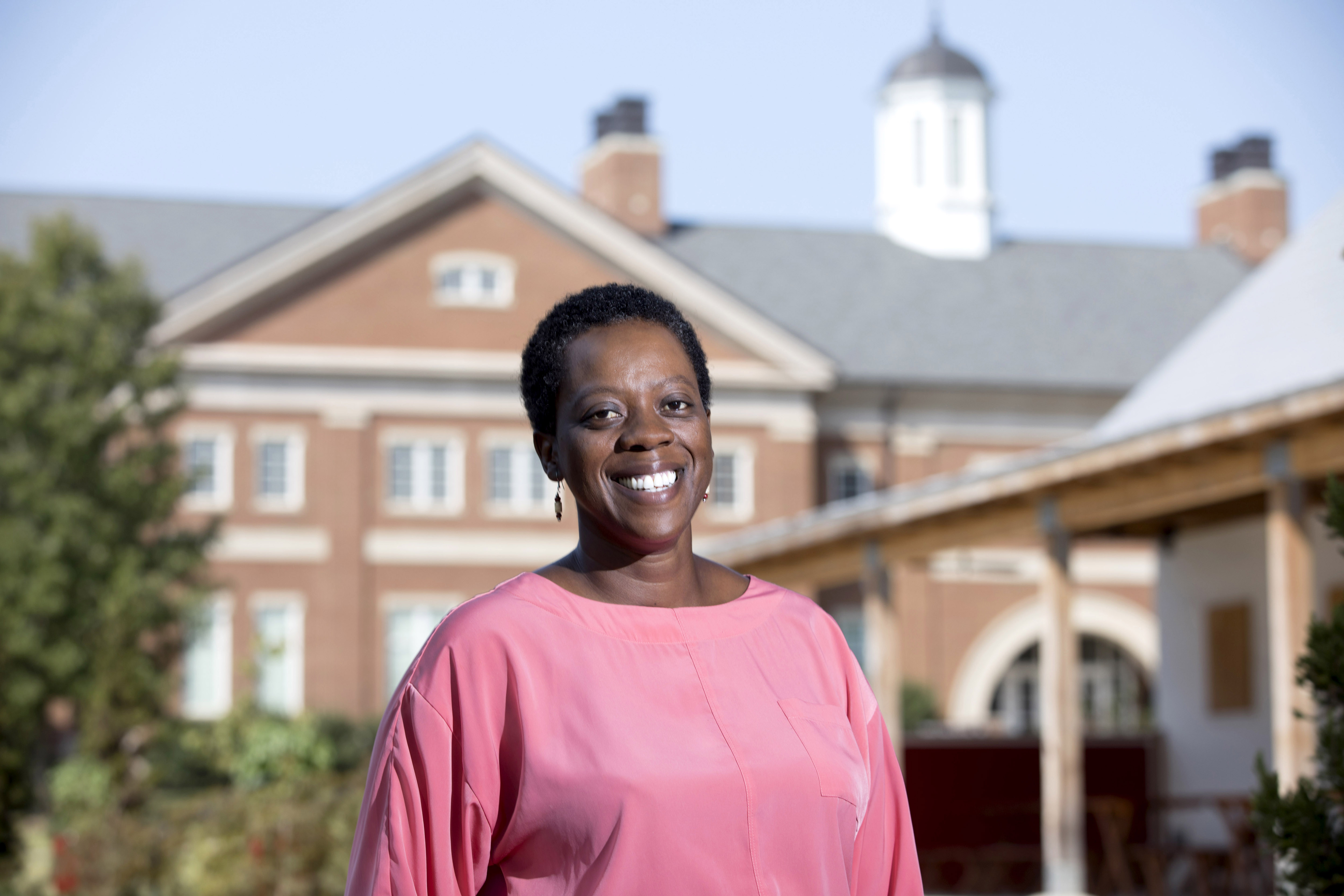Sophia Anong, an associate professor in the College of Family and Consumer Sciences, conducts research on mobile-enabled financial tools that has implications for the financial security of individuals and for consumer protection policy.
Where did you earn degrees and what are your current responsibilities at UGA?
I earned my Bachelor of Science degree in agriculture and natural resources at Africa University in Zimbabwe, and my Master of Science in agricultural economics and Ph.D. in family and consumer economics from Purdue University. I am an associate professor in the department of financial planning, housing and consumer economics in the College of Family and Consumer Sciences. I also supervise student research.
When did you come to UGA and what brought you here?
I came to UGA in August 2010 from Virginia Tech. I was drawn to the intimate setting of the Griffin campus and UGA’s flagship reputation. The campus reminded me of Africa University. I also wanted to join a college that is renowned in family and consumer sciences.
What are your favorite courses and why?
My favorite course is “Intro to Personal Finance,” which I first taught in person and later developed online. It is now one of the larger online courses at UGA. I like it because it is a life skills class available to all majors. I am motivated by the students’ financial priorities, which I poll at the beginning of the semester. Whether freshman or senior, I am fulfilled by their “light bulb” reflections as they complete monthly personalized Excel budgets, financial diaries and use mobile apps. Students relate to it so well, and they tend to let me know even long after completing the class.
What are some highlights of your career at UGA?
Students’ achievements have brought me joy. I have found I am particularly drawn to supervising international graduate students. They tend to have ambitious research interests pertaining to their home countries. I mentored a former doctoral student who conducted a survey about mobile money and microfinance in her home country, Ghana. She received the 2017 Emerging Scholar award from the American Association of Family and Consumer Sciences and an Interdisciplinary and Innovative Research Grant from the Graduate School. Another former doctoral student had a language barrier but as a naturalized citizen always said he wanted to work for a federal agency. It was a challenge to build his confidence to present his work to colleagues and at conferences. He has since worked for the Virginia Department of Health, the Economic Research Service of the USDA, and just became an economist with the Bureau of Labor Statistics. A pre-med biochemistry major studied financial strain and mental health with me through the Center for Undergraduate Research Opportunities. She won the student competition at the American Council on Consumer Interests meeting in 2017.
I also have been fortunate to twice receive the Sarah Moss Fellowship, which is administered by the university’s Center for Teaching and Learning. I worked with faculty and students at host institutions in Cameroon and Zimbabwe studying the phenomenon of mobile money. I recently received a Global Research Collaboration seed grant from the UGA offices of research and global engagement, which is helping me expand this work with my African collaborators.
 How do you describe the scope and impact of your research or scholarship to people outside of your field?
How do you describe the scope and impact of your research or scholarship to people outside of your field?
Understanding the usefulness of mobile money is important for financial security and consumer protection. It is important because less sophisticated consumers, especially in developing countries, and are not always fully aware of the costs of the services and how accessing such services impacts their financial bottom lines. They are also not always aware of their rights or effectively provided information about redress when using branchless financial services. My research contributes evidence needed to tailor effective consumer education, customer service and consumer protection policy.
How does your research or scholarship inspire your teaching, and vice versa?
My research inspires my teaching by identifying areas requiring increased financial knowledge, especially as financial service products continue to evolve. My teaching informs my research in terms of developing timely and accessible financial education through mobile phones to consumers who are otherwise not reached.
What do you hope students gain from their classroom experience with you?
To actively engage in their own financial security and also to increase their global awareness.
Describe your ideal student.
Enthusiastic, always inquisitive and does not give up.
Favorite place to be/thing to do on campus is …
… my vibrating office (on the Griffin campus) when the train passes.
Beyond the UGA campus, I like to …
… cook, travel, have fun with family and watch soccer. My son plays varsity in Fayette, and his school was 2019 state runner-up. He also plays travel soccer in the U.S. Youth National League.
Community/civic involvement includes …
… volunteering with my kids at the Midwest Food Bank warehouse in Peachtree City.
Favorite book/movie (and why)?
My favorite book is “Born a Crime” by Trevor Noah. I grew up in southern Africa and had similar family experiences. It’s well written and definitely nostalgic. My favorite movie is “RBG.” She was “notorious,” thank goodness.
The one UGA experience I will always remember will be …
… the December 2017 graduate commencement ceremony, where I hooded two international doctoral students who had both conducted their own consumer surveys that were not college student samples. Secondary data research is more common in my field, so I was especially proud of them.
Is there anything else you’d like to add?
I enjoy working with students from other disciplines. Right now, I’m mentoring a student who is analyzing a large dataset on how mobile money intersects with the health economics of consumers in Zimbabwe. He is an economics major and a statistics minor.


